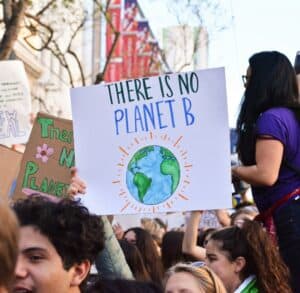The Lavin Agency Speakers Bureau
A speakers bureau that represents the best original thinkers,
writers, and doers for speaking engagements.
A speakers bureau that represents the best original thinkers,
writers, and doers for speaking engagements.
The one thing that needs to be bigger than climate change is our movement to stop it.
Of all the challenges the planet faces, none is as large as its fast-heating climate—and no one has worked longer or harder than Bill McKibben to document and fight the ever-growing crisis. Author of the first book about global warming—1989’s The End of Nature—McKibben went on to found 350.org, the biggest grassroots climate campaign in the world, and Third Act, a progressive organizing movement for people over the age of 60. In his latest book, Here Comes the Sun, he offers a call to action: to harness the power of the sun and reclaim our scientific, economic, and political future.
Bill McKibben was awarded the Right Livelihood Prize, sometimes called the “alternative Nobel.” His book The End of Nature is regarded as the first book for a general audience about climate change, and has been translated into 24 languages. TIME Magazine called him “perhaps the planet’s best green journalist,” and he’s lectured and organized on every continent, including Antarctica. His recent books include The Flag, the Cross, and the Station Wagon, an investigation of our tumultuous past and a roadmap towards a better future, and the New York Times bestseller Falter, which offers a piercing look not only at our environmental challenges, but at the existential questions that come with new technologies like artificial intelligence. The LA Review of Books says “McKibben in Falter once more explains nature’s workings, asks profound questions, and tells wonderful stories,” calling it “a humane and wise book, even a beautiful one.”
“Probably America’s most important environmentalist.”— The Boston Globe
In his heartfelt, hopeful talks, McKibben offers realistic approaches to saving our planet, as individuals, of course, but also as thoughtful members of a mobilized group. When it comes to building a movement, we should consider “being a little bit less of an individual,” he says. Together, we can create “the right kind of pressure” to make change, like getting college campuses to divest from fossil fuels. He also explores the environmental possibilities of technology, like the use of solar panels across Africa. Audiences are uplifted by McKibben’s stories of people all over the world engaged in making the planet a more environmentally just, sustainable place. His talks “give people a sense that even in their deep worry—they are not alone,” he says.
McKibben’s writing has earned him numerous awards, including membership in the Literature section of the American Academy of Arts and Sciences, and the John Steinbeck prize. The author of fifteen books, in recent years he’s written authoritative pieces on renewable energy in Africa for The New Yorker and on the fossil fuel industry for Rolling Stone. The Schumann Distinguished Scholar in Environmental Studies at Middlebury College and a fellow of the American Academy of Arts and Sciences, McKibben was the 2013 winner of the Gandhi Prize and the Thomas Merton Prize, and holds honorary degrees from 18 colleges and universities. Foreign Policy named him to their inaugural list of the world’s 100 most important global thinkers. In 2014, biologists named a new species of woodland gnat—Megophthalmidia mckibbeni—in his honor.

Harvard Economist MacArthur Genius Studying Economic Opportunity Director of Opportunity Insights

Historian New York Times Bestselling Author of Humankind: A Hopeful History, Utopia for Realists, and Moral Ambition

Author of Morningside and THE AMERICANO

Author of Grit, the #1 New York Times Bestseller | Pioneering Researcher on Grit, Perseverance, and the Science of Success

2024 Nobel Prize Winner | 3rd Most Cited Economist in the World | Bestselling Co-Author of Why Nations Fail and Power and Progress

Harvard Business School Behavioral Science Professor | "40 Under 40 MBA Professor" | Author of TALK: The Science of Conversation and the Art of Being Ourselves

#1 New York Times Bestselling Co-Author of Abundance | Host of thePlain English Podcast | Founder of the Substack Derek Thompson

#1 New York Times Bestselling Author of How the Word Is Passed and Above Ground | The Atlantic Staff Writer

We’re at a hinge moment in human history. On the one hand, we face an environmental cataclysm like none in human history; on the other, the rapid fall in the price of clean energy gives us the chance for truly rapid progress. In this urgent and engaging talk, New York Times bestselling author Bill McKibben reveals the part each of us must play in where we need to go.

In the summer of 2007, Arctic ice began to melt far more rapidly than scientists had expected. Before the season was out, they’d begun to conclude that the earth was already moving past tipping points—that indicators, from the thawing of glaciers to the spread of droughts, showed global warming was a present crisis, not a future threat. Our leading climatologists even gave us a number for the red line: 350 parts per million CO2 in the atmosphere. That’s a tough number, since we’re already past it.
In this talk, Bill McKibben describes not only the science of the situation, but also the inspiring global movement that he’s led to help change the world’s understanding of its peril, and spur the reforms necessary to get the planet back to safety. McKibben’s work has crossed the boundaries of language and faith, even the gulf between rich and poor, and it makes for a vibrant, powerful talk that can lead to real change.